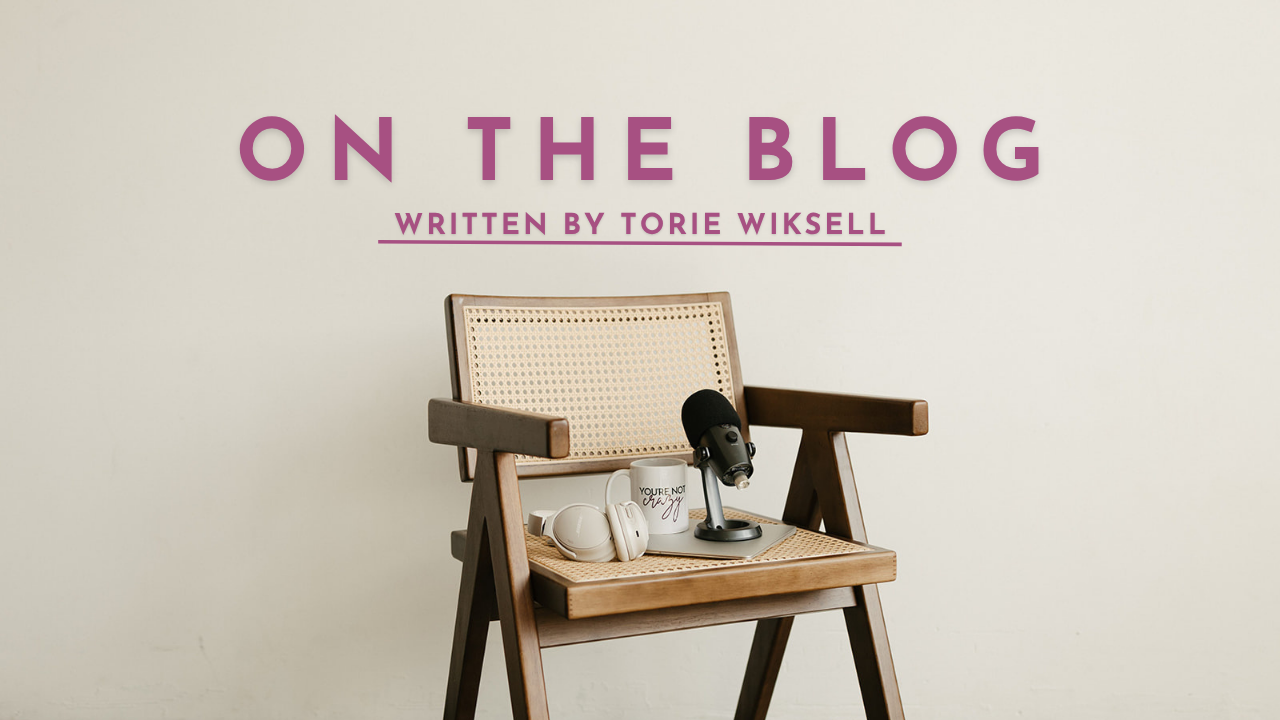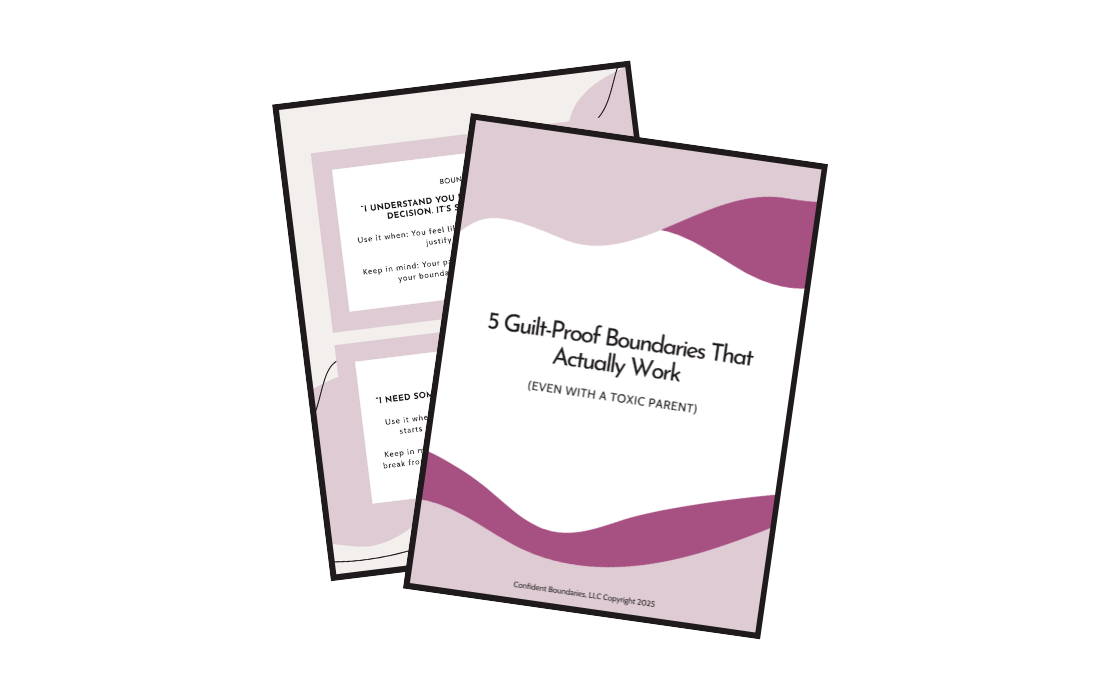
How to Deal with a Parent Who Has Borderline Personality Disorder (BPD)
Let’s just say it:
Being the adult child of a parent with borderline personality disorder (BPD) is emotionally exhausting.
You’re trying to live your own life—build your career, show up for your own family, maybe even catch a moment of peace here and there—and meanwhile, your parent is calling, texting, melting down, picking fights, or guilt-tripping you out of nowhere.
It’s a lot.
The relationship with a BPD parent is uniquely painful because it’s so inconsistent. One minute, things feel warm or even loving. The next? You’re dodging a full-blown emotional explosion. It’s the kind of dynamic that makes you constantly question yourself and wonder, “Am I the problem?”
(You’re not.)
Let’s talk about what BPD is, how it impacts your relationship with your parent, and what you can do to protect your peace without spiraling into guilt or shame.
First, What Is BPD?
Borderline personality disorder is a mental health condition that affects how someone relates to themselves and others. Common symptoms include:
-
Intense fear of abandonment
-
Mood swings
-
Unstable relationships
-
Emotional outbursts
-
Black-and-white thinking
-
Chronic feelings of emptiness
-
Impulsive behaviors (sometimes including self-harm)
Not every parent with BPD presents the same way. But if your experience has included explosive arguments, emotional manipulation, guilt-tripping, and walking on eggshells—this might explain a lot.
And just a quick note: an official diagnosis can only come from a licensed mental health professional. But if your parent walks, talks, and acts like someone with BPD, being able to put words and context to the disfunction may be helpful—even without a diagnosis.
Growing Up With a Parent With BPD: Why You Feel So Drained
Parents with unmanaged BPD are emotionally inconsistent. They often lack the ability to cope with normal life frustrations, and their own internal pain is so overwhelming, they project it onto the people closest to them—especially their children.
That means you probably spent your childhood:
-
Tiptoeing around your parent’s moods
-
Trying to prevent emotional outbursts
-
Becoming the “calm one” or the “fixer” in the family
-
Learning how to disappear or make yourself smaller just to feel safe
In other words, you became the adult way too soon.
This dynamic is called parentification—and while it may have helped you survive your childhood, those same patterns are likely wreaking havoc on your adult life now.
So what do you do about it?
Step 1: Practice Radical Acceptance
This is the hardest step for most people—but it’s also the most powerful.
Radical acceptance is about letting go of who you wish your parent could be and accepting who they actually are.
It doesn’t mean you condone the way they treat you.
It doesn’t mean it doesn’t hurt.
It means you stop living in the fantasy of “maybe one day they’ll change.”
Because the truth is—your parent probably won’t wake up one day and suddenly commit to the emotional work of healing. And continuing to expect that just keeps you stuck.
Radical acceptance lets you take back your power. It sounds like:
-
“My parent might have another meltdown this weekend—and I get to decide how I want to respond.”
-
“They may never apologize. I can grieve that, and also choose not to engage.”
-
“I don’t have to keep hoping they’ll change in order to take care of myself.”
It’s hard. But it’s freeing.
Step 2: Stop Taking Responsibility for Their Emotions
This one’s big:
You are not responsible for regulating your parent’s emotions.
When you grow up with a parent who constantly blamed you for their anger or sadness, it wires your brain to feel responsible for everyone’s emotions. You become hyper-vigilant, over-functioning, and terrified of disappointing anyone.
Here’s what I want you to know:
-
Their rage is not your fault.
-
Their sadness is not your responsibility.
-
Their instability is not something you can fix.
What is your responsibility?
Learning how to regulate your own emotions.
That starts with noticing when you’re getting pulled into their chaos. Learning how to pause, breathe, and ground yourself before reacting. Therapy can help with this in a big way—and so can surrounding yourself with people who don’t make you feel like you’re walking on eggshells.
Step 3: Find Support From People Who Get It
One of the most painful parts of dealing with toxic parents is the lack of understanding from other people.
You might hear:
-
“But they’re your mom!”
-
“Just talk to her.”
-
“You only get one parent!”
(Sound familiar?)
Here’s the truth:
You don’t owe anyone an explanation for why you’ve had to protect yourself.
And anyone who pressures you to “fix” the relationship with your parent—completely disregarding the years of emotional abuse, guilt, and instability—is not someone who gets a say in how you heal.
You deserve a support system that validates your experience. That helps you set boundaries without judgment. That reminds you that your needs matter.
This is why I created the Confident Boundaries Membership—because too many adults with emotionally immature parents are doing this healing work alone. You don’t have to.
So... Can You Have a Relationship With a BPD Parent?
Sometimes yes. Sometimes no. Sometimes “kind of.”
There’s no one-size-fits-all answer here.
You can have a highly-boundaried relationship with a parent who has BPD if it doesn’t destroy your mental health. But even then, you get to change your mind at any time.
The key is getting clear on your boundaries—and holding them.
No over-explaining. No guilt. No performance.
Your only job is to take care of yourself.
Final Thoughts
Whether you’re low-contact, no-contact, or somewhere in between—you’re allowed to want peace.
Dealing with toxic parents is not easy. It’s layered. It’s painful. It’s lonely.
But it’s also the first step in breaking generational patterns that have been handed down for far too long.
You don’t have to keep playing the role you were cast in as a child.
You don’t have to keep hoping they’ll change in order to feel better.
You don’t have to keep living like the past is your future.
You get to set boundaries.
You get to create safety.
And you get to build a life that feels good to you—regardless of what your parent thinks about it.
You’re Not Crazy.
But you might have been gaslit by your parents.
Learn how to recognize the signs—and start rebuilding trust in yourself.
I hate SPAM. I will never sell your information, for any reason.
Blog Topics
Hi there!

I'm Torie
THERAPIST. COACH. CYCLE BREAKER.
I grew up with a narcissistic parent and now help other adults who grew up in dysfunctional families learn how to set boundaries and take back control of their lives. Drawing from over a decade of experience as a therapist and my own personal journey, I'm passionate about helping others feel less alone while dealing with their complicated family dynamics.


